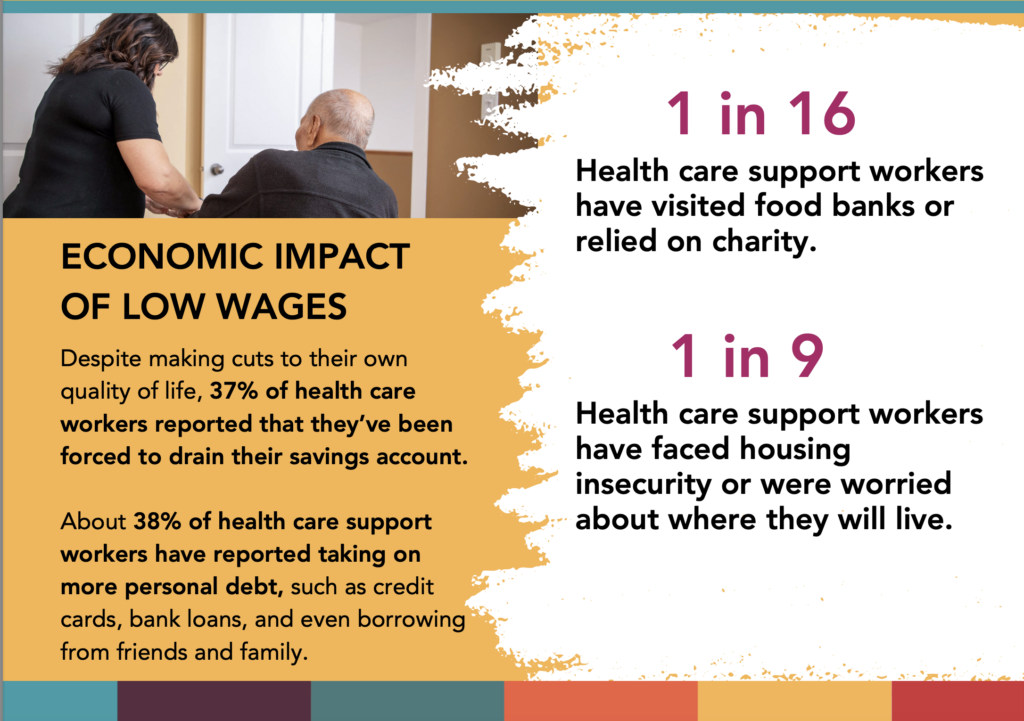WINNIPEG, TREATY 1 – Health care support workers in Manitoba are experiencing a new kind of health care cut, according to a survey conducted from over 5,000 support workers in the WRHA, Shared Health, Southern Health-Santé Sud, and the Northern Regional Health Authority.
One in sixteen Manitoba health care support workers report relying on foodbanks or charity, while one in nine have faced housing insecurity.
“The reality for front line health care support workers is that there is very little financial security in these jobs right now,” said Margaret Schroeder, President of CUPE 204, representing support workers in the WRHA and Shared Health, and a health care worker herself. “Health care support workers have worked through some extremely challenging times, and the economic situation for us continues to be dire”.
According to front line health care workers responding to the survey, nearly 30% of health care support workers report having two or more jobs, with 76% noting the second job is due to economic necessity. 39% of health care support workers said they work more than 40 hours per week.
Additionally, 45% of health care support workers indicated that they are their family’s sole or primary income earner, and 63% reported they have dependents who rely on them. At the same time, 37% of health care support workers reported that they’ve been forced to drain their bank accounts.
“Manitobans have told government that fixing health care should be the number one priority, and that should start with supporting the workers who on the front lines every single day,” said Gina McKay, President of CUPE Manitoba. “There is no reason why health care workers should be working more, for less, and struggling to get by”
A new kind of health care cut in Manitoba
Under the previous Conservative government, the health care system faced years of harmful cuts and restructuring, but now health care workers are experiencing a new kind of health care cut.
Low wages means health care workers are forced to make major cuts to their own livelihoods, with 59% reporting cutting back on household spending, 56% being unable to save for the future, 52% cutting back on groceries, and 49% cutting back on family activities.
“When health care support workers are treated poorly, it’s no surprise that they will start looking for other jobs,” said McKay, citing the CUPE report issued last week that found that nearly 50% of health care workers were looking for a new job. “Health care workers are looking for support today, and government needs to take action now before these jobs become so unsustainable that new hires won’t keep up with an exodus”.
25,000 health care support workers in Manitoba are preparing to go on strike on October 8th unless government and health care employers come forward with a fair deal that includes real improvements to workers’ wages.
Data from this survey came from over 5,000 health care support workers in the WRHA, Shared Health, Southern Health-Santé Sud, and Northern Regional Health Authority. The questions were part of the CUPE bargaining survey in March 2024, conducted to identify priorities for front line support workers in Manitoba.
Read the full report here: Issue#2 CUPE Research Report Voices from the Front Line

